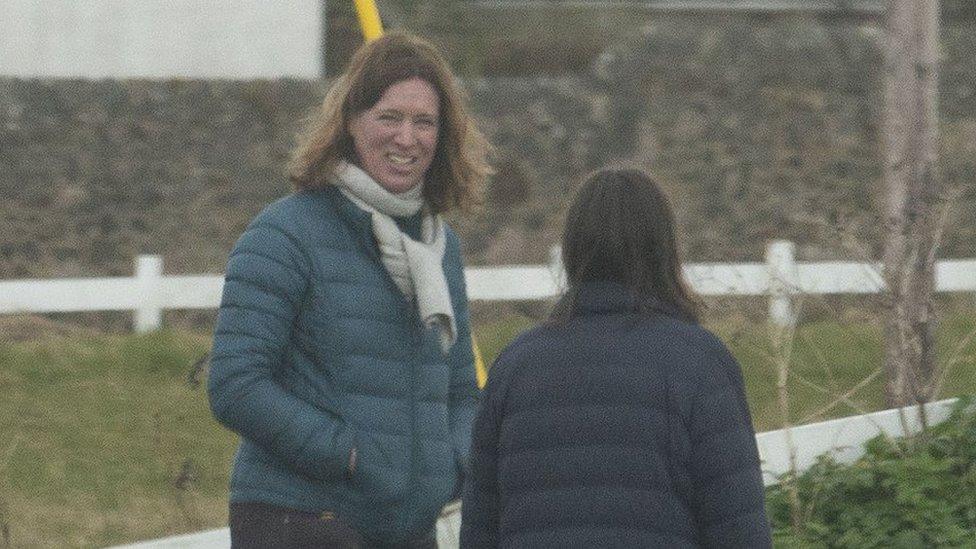The good, the bad and the ugly plague
- Published

You'll be familiar with the phenomenon of "good cop, bad cop". The blend of tough and tender, arising either from human character disparity - or, more cynically, designed to disorientate a suspect and extract a confession.
Ach, you know how it works. There's one bobby, who runs a youth club in his spare time. He'll nudge the suspect gently awake, then offer a restorative cup of tea. With an optional Hobnob.
In rushes his mate. His cropped hair bristling, his chin performing impossibly athletic thrusts. "Ok, Slasher, oot wi' it. Whaur did ye stash the chib?"
Nicola Sturgeon contrives to offer a blend of the two. Fair enough, she didn't describe Jackson Carlaw as Slasher or Killer. She reserves such sobriquets for some of her Westminster colleagues.
But, in her Holyrood statement today, she did manage to offer a distinct mixture of the tender and the tough.
For example, she announced that she is to accelerate the prospect of communal worship.
'Hope or despair'
At the moment, you are permitted to pray, alone. Head bowed in solitary hope or despair, according to your outlook.
From next Wednesday, religious groups will be able once more to band together in socially-distanced spiritual communion.
At this, the tender cop smiles beatifically, replete with the milk of conjoined kindness.
In stomps his mate. "There will be no singing!", he declares. "No singing or chanting of any kind. Period!!".
To be serious for a moment, there is a distinct purpose behind Nicola Sturgeon's mildly Manichean approach.
Even as she announced the biggest and most significant easing since lockdown began, you could tell that she was contemplating the concomitant risk involved.
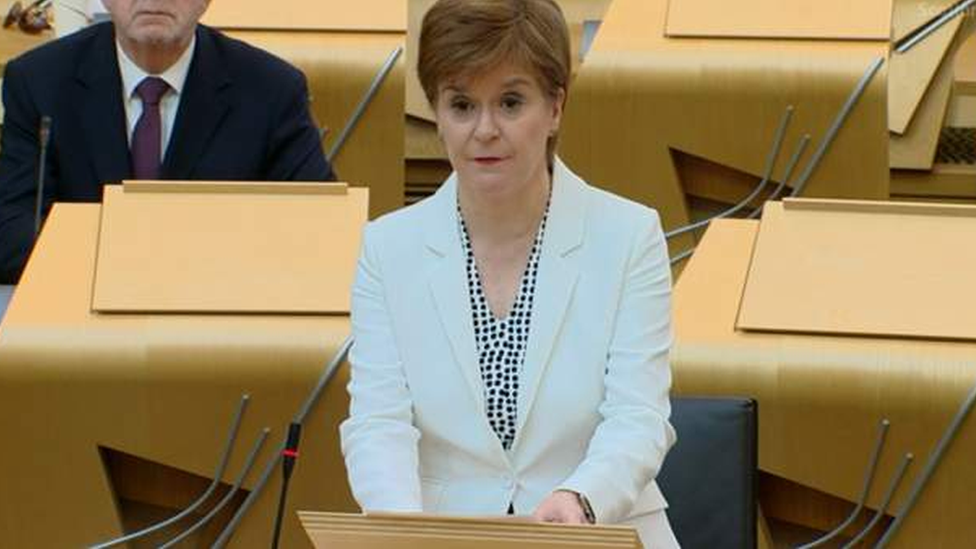
Nicola Sturgeon admitted some lockdown changes were "high risk"
Indeed, one did not need to guess at this phenomenon. You could see it in her demeanour, hear it in her tone - and witness it in her own words.
She announced a substantial liberalisation of social and family gatherings - then immediately noted that this was "one of the highest-risk changes" that has been made.
She essayed a matey approach - the cop with the Hobnobs was back - as she depicted the nation looking forward to a pint, a coffee or a comradely chat.
But at her back she always hears the hazard of a reinvigorated virus. Like the poet Marvell, in rather different circumstances, she beholds the prospect of "deserts of vast eternity".
Indeed, at one point, she referred to coronavirus as "literally, a plague". Scarcely can one conceive of an image more apocalyptic in nature.
But, chums, for good reason. Coronavirus is not a mild irritation. It is deadly. It has killed thousands in Scotland and hundreds of thousands around the globe. Its capacity to inflict lasting damage has yet to be assessed fully.
More measured
Further, the endeavours to contain this hideous plague are set fair - or, rather, foul - to endanger the fabric of our economy and society.
Little wonder Nicola Sturgeon is torn. Little wonder she hesitates when announcing easing measures. It is, arguably, an honourable pause.
Perhaps it was the capacious scope of the statement, perhaps it was the passage of time, but the exchanges in Holyrood today seemed rather more measured than in the recent past.
There was even a hint of badinage between Ms Sturgeon and Mr Carlaw. Ok, they definitely weren't just there for the banter - but it was a little, just a mite, more chummy than in the past few weeks.
Mr Carlaw asked a series of eminently sensible, pointed questions about elements of the Scottish government's approach, tackling inter alia the issue of long-term childcare and the response to the chancellor's economic package.
(That latter point was addressed in a separate statement by Kate Forbes, the finance secretary, who announced measures to exempt most Scottish house purchases from LBTT - together with support for first-time buyers and those seeking employment.)
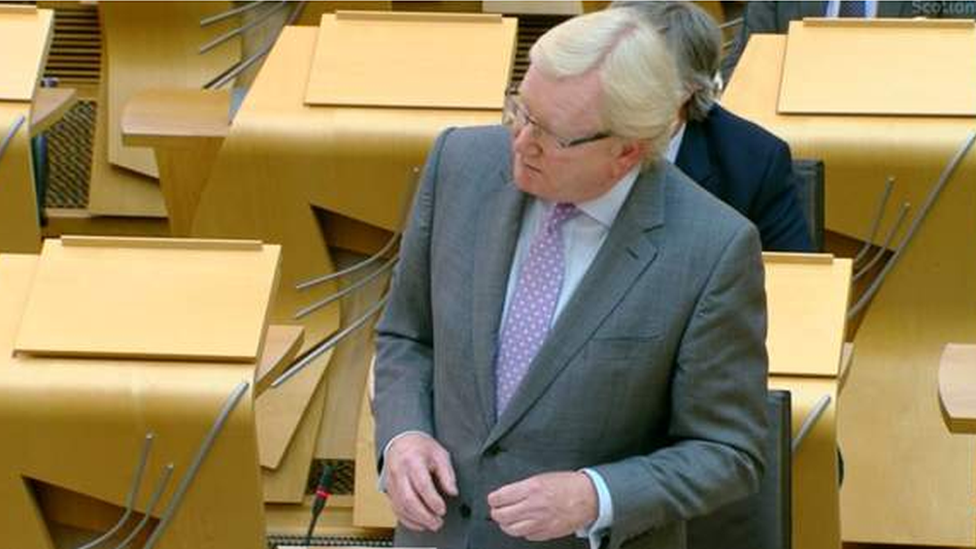
Jackson Carlaw's exchanges with Nicola Sturgeon were less heated than previous exchanges
In his discourse with the FM, Mr Carlaw then turned to the continuing quarantine of folk returning or arriving from Spain. Was it possible, he said, that certain parts of Spain could be exempt?
At one point, he appeared intent on listing all of the Spanish islands, both Canary and Balearic. Indeed, it seemed he would go on to mention each resort, together with a star rating for the pubs.
Ms Sturgeon drolly suggested that this was the Carlaw vacation itinerary - while also noting, with dry appreciation, that he appeared willing to accept that a distinction in policy could be made within the boundaries of a single state.
What could she possibly mean? Reino Unido, Royaume Uni, of course.
Threatened jobs
In comparably dry fashion, Mr Carlaw retorted that the Spanish islands were separated from the mainland by a thousand miles of water. Unlike Scotland and England - however much, he added, the Nationalists might wish it were otherwise.
Labour's Richard Leonard delivered an emotional and economic appeal to protect threatened jobs in Scotland, encompassing in his remarks two delegations from Rolls Royce and the aviation industry who were lobbying Parliament.
Alison Johnstone for the Greens and Willie Rennie for the Liberal Democrats both pursued, with comparable gusto, the issue of childcare, noting its wider impact upon the economy and society.
In all, Parliament did its job of scrutiny. Our MSPs, first minister included, did their job.
It was almost like old times. Almost. But, of course, normality is impossible for now. If only, if only, that hideous plague would relent.
- Published6 April 2020
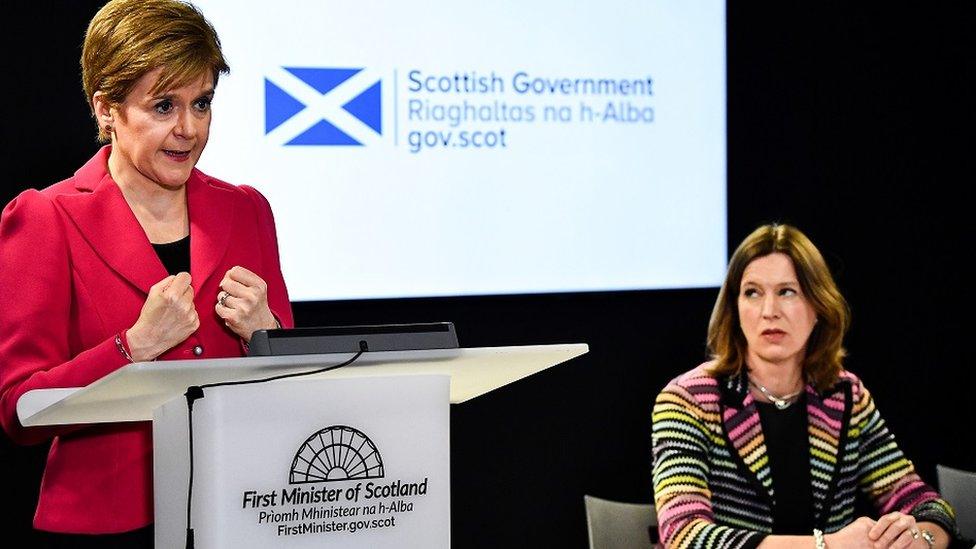
- Published6 April 2020
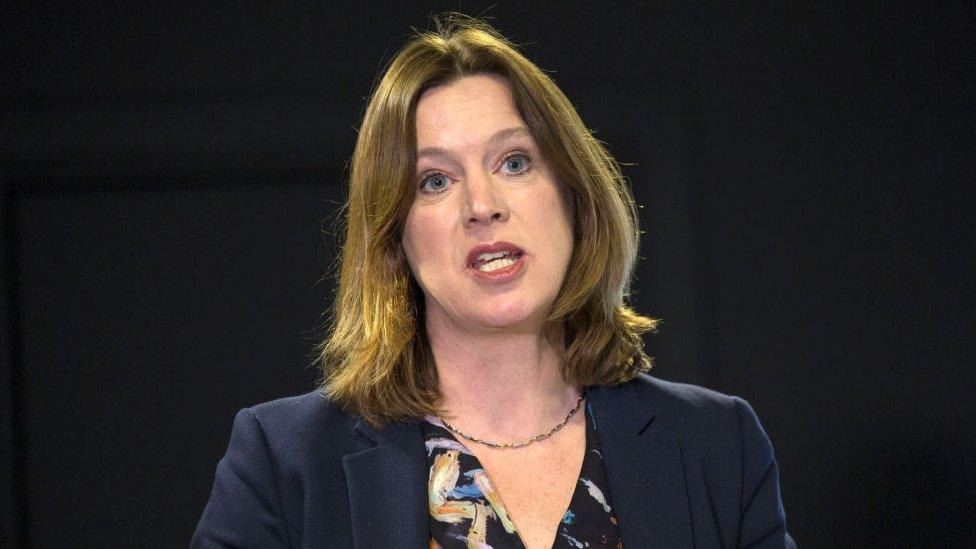
- Published5 April 2020
